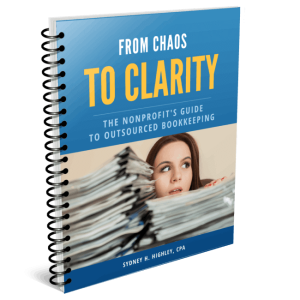
What You Need to Know About Nonprofit Budgeting in 99 Words
Nonprofit budgeting goes beyond finances—it’s the foundation for turning your mission into action. A solid budget helps you manage limited resources, plan for future growth, and ensure your programs have the needed funding. Understanding your income, expenses, and financial goals can create a stable and effective roadmap for your organization. Budgeting also shows donors and funders that you’re responsible for their support, building trust and confidence in your work.
Want more? Keep reading…
Table of Contents
ToggleWhy Nonprofit Budgeting is Essential for Financial Stability
Budgeting is a lifeline for nonprofit organizations. Here’s why budgeting is so essential.
It Helps You Manage Limited Resources Wisely
Nonprofits often work with tight budgets, so careful planning is a must. A budget helps you identify where your funds are coming from and where they’re needed most.
By mapping out your income and expenses, you can make informed decisions on allocating resources without overspending or cutting essential programs.
It Helps Nonprofits Avoid Financial Crises
No one can predict the future, but a solid budget prepares your nonprofit for the unexpected. A clear financial plan can help you navigate challenging situations without scrambling for solutions, providing a sense of security.
Your programs stay on track, and your mission remains strong, no matter what challenges arise.
It Aligns Your Budget With Your Mission
Your nonprofit’s budget should always reflect your mission. Aligning your financial plan with your goals ensures every dollar spent directly supports the work you’re passionate about and keeps your organization focused but also provides a sense of fulfillment, showing donors and funders that you’re financially responsible and dedicated to making a real impact.
A well-managed budget builds trust and helps secure future support.
Key Components of Nonprofit Budgeting
Creating a budget for your nonprofit involves understanding several key components. Let’s break down these essentials to help you build a budget that effectively supports your mission.
Understanding Your Income Sources
Nonprofit budgeting starts with a clear picture of where your money comes from. It includes donations, grants, fundraising events, and any earned income.
By understanding and listing all possible revenue streams and estimating their contributions, you can take control of your financial planning and anticipate shortfalls.
Managing Operating Expenses
Operating expenses cover the day-to-day costs of running your organization, such as rent, utilities, salaries, and office supplies. Tracking these costs closely ensures you stay within budget and continue running smoothly. Reviewing and updating this section helps you keep your operations efficient and cost-effective.
Budgeting for Program Costs
Program costs are directly related to delivering your services and fulfilling your mission. Allocating funds for these areas ensures that your core programs are well-supported and can make the impact you aim for.
Differentiating Restricted vs. Unrestricted Funds
Understanding the difference between restricted and unrestricted funds is crucial for accurate nonprofit budgeting. Restricted funds are designated for specific purposes by donors or grantmakers and can only be used for those purposes.
On the other hand, unrestricted funds can be used for general operating expenses or any other needs. Ensure your budget reflects these distinctions so you use funds appropriately and transparently.
Tracking In-Kind Donations & Volunteer Services
In-kind donations and volunteer services provide valuable support to your organization. While these aren’t always cash transactions, they must be tracked in your budget. Record the value of donated goods and services to reflect their impact on your operations.
It helps demonstrate the full extent of your resources to donors and funders and appreciate the contributions of volunteers.
Best Practices for Effective Nonprofit Budgeting
Effective nonprofit budgeting is crucial for your organization’s success. Here are some practical tips and strategies to help you manage your finances and stay on track.
Involve Your Board
For a budget to be truly effective, it’s crucial to involve your board of directors. Their insights can help set realistic goals and ensure the budget reflects the organization’s priorities.
Regular meetings to review the budget keep everyone on the same page and ready to tackle any issues.
Use Technology
Take advantage of budgeting software and tools to simplify the process. Technology can make tracking expenses easier, forecasting future needs, and making adjustments quickly. It saves time and helps avoid errors so you can focus more on your mission.
Be Transparent
Open communication about the budget with your stakeholders builds trust. Share updates and explain how funds are being used to support your mission. Transparency shows that you’re responsible and committed, which can encourage more support and involvement from your community.
Final Thoughts
Nonprofit budgeting is a cornerstone of organizational success. Solid budgeting practices ensure your organization remains financially healthy and continues to make a meaningful impact.
If you need support in creating or managing your budget, Daily Balance is here to help. Contact us to get expert accounting services tailored specifically for nonprofits, and let’s work together to strengthen your financial future and mission.
Nonprofit Resources

About the Author
Syd Highley is a CPA and Managing Principal of Daily Balance, a nonprofit accounting firm located in Sacramento, CA. Offering virtual nonprofit bookkeeping services that take the place of an in-house accounting department, with the added benefits of financial audit representation and virtual CFO services, Highley empowers nonprofits to focus on their missions while saving up to 40% in accounting costs.






